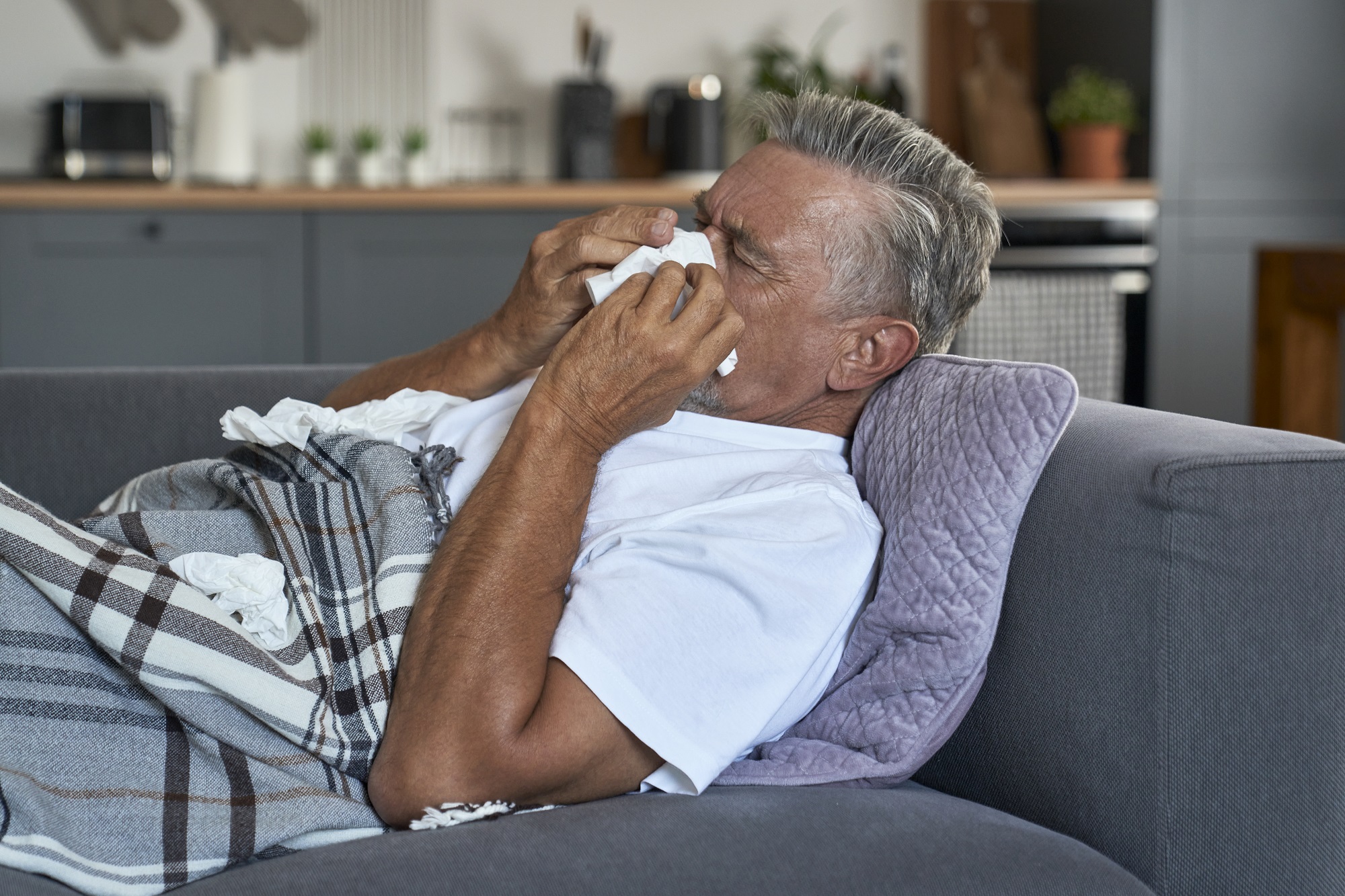
How to Stop a Cold in its Tracks
March 22, 2023With the weather starting to warm, you might be inclined to believe that cold season is over. This, unfortunately, isn’t the case. Regular fluctuations in temperatures outdoors might make you more susceptible to a cold than before. And while the common cold isn’t usually something to be worried about, it can pose a serious problem for some seniors.
Many older adults have lowered immune systems, which can make it easier for them to catch a cold, cause it to last longer, and even lead it to develop into a more serious condition like pneumonia. It’s important you know how to stop a cold in its tracks, and what measures you can take to prevent them.
Get as much rest as possible
When you’re coming down with any sort of illness, rest is almost always one of the first things recommended—and it is with good reason. When you sleep, your immune system is able to get to work fighting off your infection.
If sleep feels impossible due to your symptoms, take steps to ward off your symptoms. Nasal strips can help open up your nasal passages, which relieves congestion. To relieve congestion and a cough, over-the-counter cold medications can do the trick. Just speak with your doctor before taking any to make sure it is right for you.
Stay hydrated
In addition to being important to your overall bodily function, staying hydrated can also help relieve a sore throat or stuffy nose. Avoid overly sugary and caffeinated drinks, as these can actually dehydrate you. Instead, consume plenty of water and drinks high in electrolytes, which help you absorb your fluids.
Hot drinks, like warm water with lemon and teas, are fantastic for aiding a sore throat. Bone broth soups, such as chicken noodle, are also said to be high in healing collagens and amino acids.
Attempt some light exercise
Moving around while you’re sick may be one of the last things you want to do, but light exercise has actually been shown to boost the immune system. The key word here, however, is “light.” Don’t go to the gym, go for a run, or do anything particularly high-intensity. Activities like a walk or at-home yoga session will be plenty enough to benefit your health and your mind.
Flush your sinuses
You’ll often hear about people taking breathing for granted until the moment they develop a cold. Congestion is uncomfortable and can have an impact on all aspects of your life. However, a nasal rinse with a neti pot can help you breathe like normal again. Users fill the pot with saline solution, insert the spout into one side of the nose, and then tilt their heads to allow the solution to flow out the other side.
It isn’t exactly pleasant, but the benefits are worth it. Nasal rinses clear sinuses, relieve nasal dryness, alleviate congestion headaches, and improve your senses of taste and smell. Nasal sprays can have a similar effect.
Talk to your doctor about taking vitamins
Cold and flu season comes with a host of symptoms, such as runny nose and scratchy throat. That being said, the cold virus can display a wide variety of symptoms, such as sneezing, coughing, post-nasal drip, watery eyes, and even fever in some cases. The duration of cold symptoms can be as many as 10-14 days. They usually abate after a few days and do not require any medical intervention.
However, you may want to contact your doctor if your symptoms are persistently severe, unusual, or if you have a fever. It could be a sign of a more serious condition, such as upper respiratory tract infection. It is also possible that your doctor may simply recommend a course of treatment to help alleviate your symptoms.
When should I see a doctor?
Cold symptoms usually abate after a few days and do not require any medical intervention. However, you may want to contact your doctor if your symptoms last longer than 10 days, are persistently severe, are unusual, or if you have a fever. Your doctor will be able to recommend a course of treatment to help alleviate your symptoms.
Hire an at-home caregiver for your daily needs
At Home Care Powered by AUAF, our home caregivers help seniors live healthfully and happily in the comfort of their homes. Our staff is trained to provide assistance with the various non-medical activities of daily living seniors may require help with. These include meal preparation, medication reminders, and personal care.
If you think you or a loved one could benefit from the support of one of our caregivers, give us a call at 312-971-6355. We’d be happy to discuss care plans with you.
Articles:
-
How to Use FaceTime: a Senior’s Guide
March 20th, 2024 -
The Best Organic Cleaning Products for Caregivers
March 19th, 2024 -
Celebrating St. Patrick’s Day with Seniors
March 14th, 2024 -
Intellectual Activities for Seniors to Keep their Brains Stimulated
March 13th, 2024 -
Tips for Communicating with Seniors with Hearing Loss
March 12th, 2024 -
How to Learn a New Language as an Older Adult
March 7th, 2024 -
Foods that Support Bone Health in Seniors
March 6th, 2024 -
A Note to Our Staff for Caregiver Appreciation Day
March 1st, 2024 -
The Importance of a Senior/Caregiver Bond
February 21st, 2024 -
Recreational Sports as Fitness for Seniors
February 27th, 2024 -
Exploring the Wonders of Reminiscence Therapy
February 15th, 2024 -
Staying Educated on Alzheimer’s Disease and Dementia Care
February 14th, 2024
Call Now! 773.274.9262






